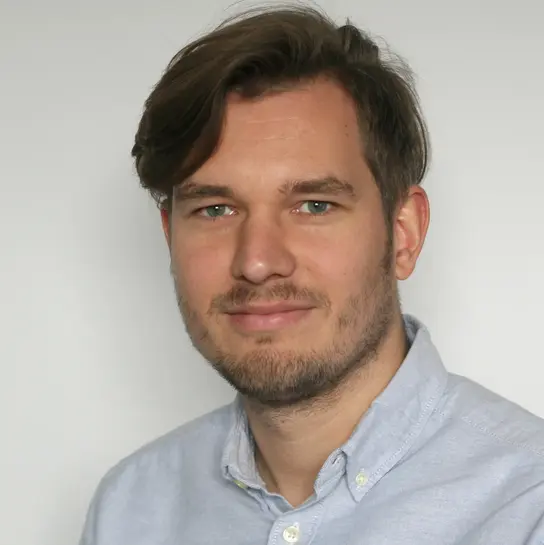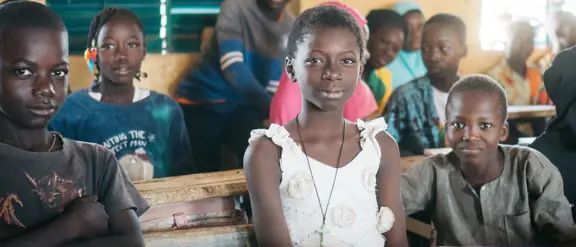Burkina Faso: An interview on the situation in the country
Largely unnoticed by the international public, violence, flight, and displacement in Burkina Faso have reached alarming levels: For more than six years, the country has been in the crosshairs of jihadist terror, which is also raging in Mali and Niger. Marti Gensel, Africa co-financing officer at Terre des Hommes , was on site and reports on the conflict, the situation of refugee children, and the work of Terre des Hommes .
Who is fighting for whom and why in Burkina Faso?
The situation is very complex, there are numerous actors: the terrorist network al-Qaida and the Islamic state close to the Islamic state, which have still worked partially together until 2019, are now fighting against each other. Local militias, armed volunteer groups, police, military and security forces support the government, which changed twice in the past year alone. The goals in the individual regional conflicts are not always clearly tangible, mostly in addition to religious ideologies, it is also about conquering territories, control of economic activities and the targeted increase in political instability. However, breeding ground for all of these are much further back, profound problems such as poverty, lack of social services and the neglect of the rural population by the state, which has led to great dissatisfaction with the population.
Why are so many young people join these groups?
Certainly very few do this out of ideological conviction. In addition to intimidation and direct compulsion, many of these mostly marginalized male young people lack an alternative: there are no educational offers and no sources of income. The participation in an armed group can be perceived as a perspective.
Is the whole country affected by violence?
Indirectly, even if it is safer around the capital Ouagadougou and in the south of the country. In many other regions, attacks take place regularly, villages are looted or there are fighting. The north and the east are currently no longer accessible to us, and there is no stabilization of the situation in sight.
But people still live there ...
Yes, but there are no longer any government structures and therefore no security. The armed groups introduce their own jurisdiction. If you are hostile to your rules, you will be seen as an ally competing groups or the state. That can have bad consequences. People are faced with the choice: I submit to this imposed rules or I flee. On the other hand, control by an armed group for a village can also mean that there are no more fights and a little rest.
22 million people live in Burkina Faso, are many of them on the run?
Almost two million have officially fled their home region, most of them are women and children. The actual number is probably even higher: No internal refugees are registered in the capital, but the reality looks very different.

"People are faced with the choice: I submit to this imposed rules or I flee."
What do you live on?
Not only the refugees live in Burkina Faso, but three to four million people in acute nutritional uncertainty. Many help in agriculture or cattle economy, operate informal trade or are busy with occasional work. However, many are dependent on humanitarian aid, some are supported by relatives or acquaintances. Some municipalities have received twice to three times their original population of refugees. This has an enormous impact on the infrastructure such as the health centers and their staff. In many places there is a lack of sufficient drinking water sources and sanitary facilities.
How are the children and young people? Are there enough schools?
In the classes of the receiving schools there are sometimes well over 100 students. The equipment is often temporary, and lessons take place outside. In addition, there are language problems: the fled children often do not understand the official national language or the local language of their recording community, because there are many different local languages in Burkina Faso.
What does such school lessons bring to the children?
Although the quality of education may not be the best due to the circumstances described, the children find a protected space at school. You can exchange ideas with the same age, get a sense of belonging and a piece of normality.
How does Terre des Hommes help?
For example, with integration lessons for refugee children or children of the receiving communities who have not yet attended any school. At the moment, more than 2,000 children are visiting the courses. They last nine months and take place outside of regular school days. Among other things, the children also learn French there. Our partner organizations also improve the equipment of the schools, get plates, chairs, tables and learning materials. At the same time, we work with the teachers: they should learn to deal with the refugee children so that they are better integrated and no conflicts between refugees and locals arise.
Terre des Hommes is concerned with the education of children…
About their education and for their protection: the difficult situation of families is far too often a breeding ground for violence and the violation of children's rights. Our partner organizations build protective committees in around 30 municipalities that become active when someone observes children's rights violations.
What children's rights violations are it about?
For example, genital mutilation of girls, exploitative child labor, neglect, physical or psychological violence against young women or girls or even recruitment by armed groups. In many of these cases, the protection committees can act as the first point of contact. The case is brought in there and then forwarded to the responsible authorities. However, they also ensure that they prevent such violations of the law by investigating and early intervention. They are supported by children's and youth clubs in which children's rights and their injury are informed.
What impressed you the most on your trip?
Much, but above all, the high level of helpfulness of people from the reception communities. They are faced with challenging living conditions, but the helpful for refugees is enormous. There are hardly any clashes, the situation is somehow mastered together. I was also impressed by the oversized gratitude for our work and the work of our partner organizations. The need in almost all areas is immense.
Help with a donation